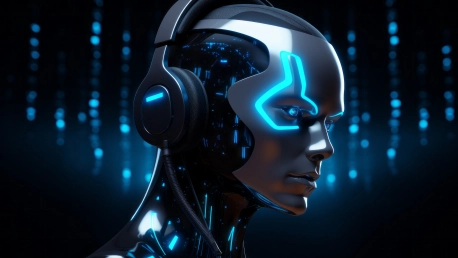The evolution of artificial intelligence (AI) is dramatically impacting various industries, with education being no exception. As the sector rapidly adapts to technological advancements, AI has become an invaluable asset, fundamentally changing how information is delivered, courses are designed, and students are evaluated.
AI Personalization Transforming Learning Experiences
AI technologies cater to different learners by providing customized content and learning pathways. This personalization addresses individual strengths and weaknesses, making education more effective and engaging. For instance, AI systems can analyze student interactions and performance to adapt the educational material, ensuring that each student faces the right degree of challenge. These intelligent platforms can discern various learning styles and preferences, thus tailoring instruction to suit visual, auditory, or kinesthetic learners, among others.Moreover, AI plays a pivotal role in adaptive testing and assessment, which revolutionizes student evaluation. By interpreting responses in real-time, AI can pinpoint students’ comprehension gaps and adapt the difficulty of questions accordingly. This approach offers a double benefit: honing in on areas that require more attention and providing feedback that teachers can use to customize subsequent lessons.
Enhancing Teacher Productivity with AI
AI is automating time-intensive administrative tasks like grading and attendance, giving teachers more room to focus on student interaction and creative teaching strategies. Tools like Gradescope use AI to grade assignments uniformly and swiftly, while attendance-tracking software can accurately record student presence through facial recognition or other biometric features. Freeing educators from such duties allows for a more student-oriented approach and time for professional development.Curriculum development and resource management are other domains where AI is making waves. AI tools assist educators in keeping their instructional materials relevant and engaging. For example, platforms that harness AI can suggest updates to course materials or even generate new content based on the latest information and educational trends.
AI Tools Revolutionizing Education
A multitude of AI educational tools are rapidly altering how we teach and learn. Course Hero and MathGPTPro shine as beacons in this technological revolution. Course Hero, with its AI homework assistance, and MathGPTPro, with its interactive tutoring, epitomize the shift towards 24/7 accessible education. These tools not only solve immediate problems such as providing answers and explanations on demand, but also track learning progress to facilitate improvement over time.These AI technologies are not only convenient but also have a far-reaching impact on learning outcomes. They ensure consistent grading with tools like Gradescope and extend personalized tutoring far beyond the confines of the traditional classroom. Students can receive instant help, which empowers them to overcome obstacles without delay, while teachers can monitor the effectiveness of their instruction and adjust as needed.
Breaking Down Language Barriers with AI
AI effectively dismantles language barriers in academic settings, aiding international students and educators in handling multilingual communication. Translation software and natural language processing applications allow for instantaneous and accurate translations, enabling students from diverse linguistic backgrounds to access instructions and materials in their native languages. This capability is monumental for inclusivity, ensuring that educational content is accessible to non-native speakers and those with language-related disabilities.These tools aren’t just about word-for-word translation; AI is advancing towards understanding cultural context and nuances, bridging the communication divide in higher education. It facilitates a global learning environment where students and faculty can collaborate seamlessly, irrespective of their linguistic differences, fostering a more inclusive and equitable educational landscape.
The Future Role of AI in Education
Artificial intelligence (AI) is revolutionizing the education sector, reshaping the delivery, design, and assessment of learning. By integrating advanced technology, educators can now offer personalized instruction, adapting to individual student needs and learning paces. With AI, courses can be dynamically tailored, incorporating data-driven insights to enhance learning outcomes.The impact of AI on education also extends to administrative efficiency, where machine learning algorithms can handle tasks such as enrollment, scheduling, and grading, allowing educators to focus more on teaching and engaging with students. Furthermore, AI-driven analytics help in closely monitoring student performance, enabling early intervention for those who may be struggling, and aiding in the development of targeted improvement strategies.Students benefit from these AI-powered educational tools, as they receive immediate feedback, access to interactive learning platforms, and educational materials that are adjusted in real time to suit their evolving capabilities. The result is a more inclusive, adaptable, and effective educational experience that prepares students for an increasingly digital world.Meanwhile, the adoption of AI continues to spark discussions regarding ethical considerations, the role of teachers, and the protection of student data. Overall, as AI continues to mature, its role in advancing educational practices cannot be overstated, promising to unlock new potentials for both teaching and learning.









